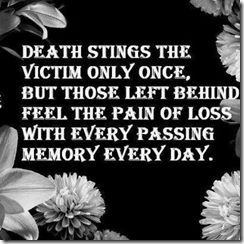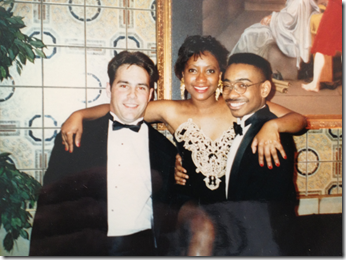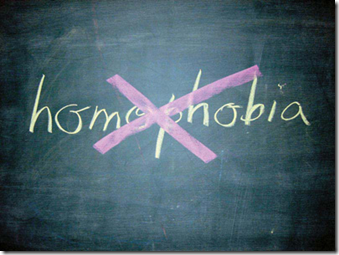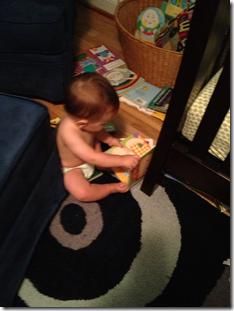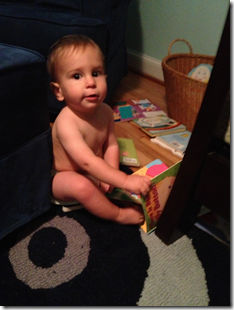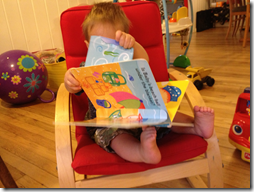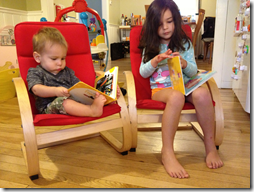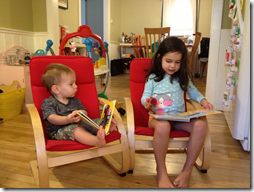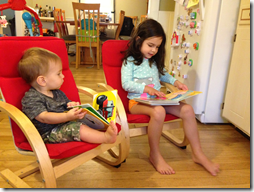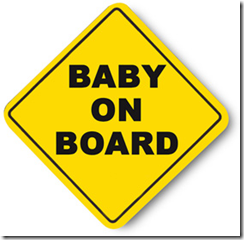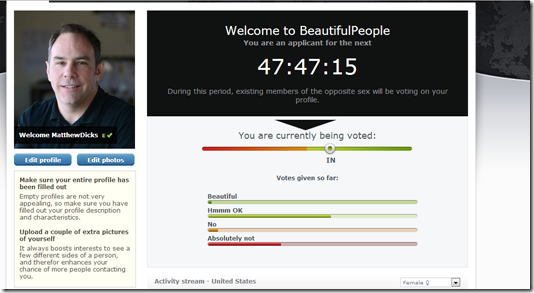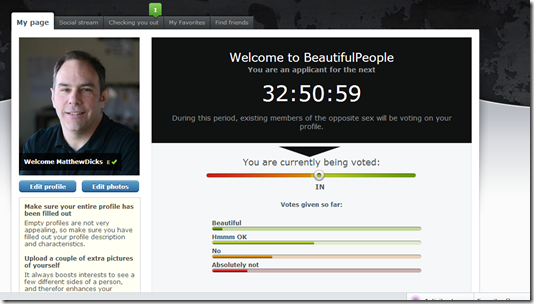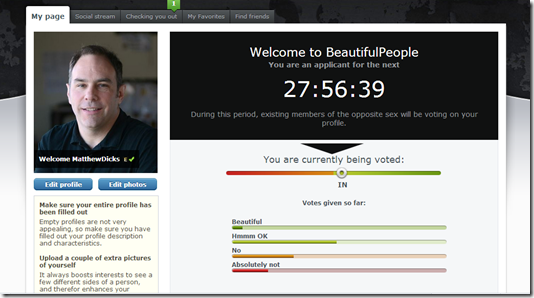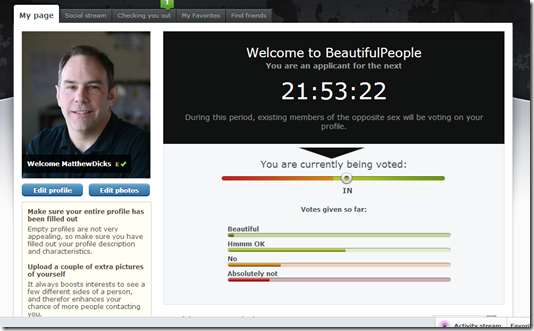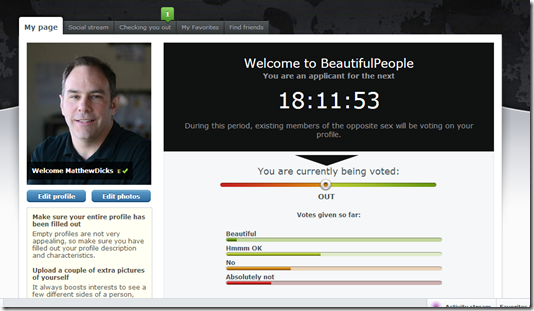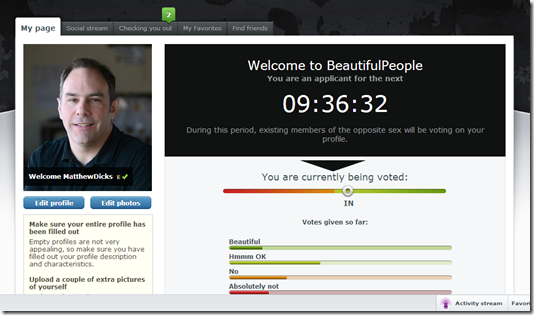Matthew Dicks's Blog, page 452
August 12, 2013
Susan Cain is right about most things, but she is wrong about death
Author Susan Cain posted this in response to her reading from the Book of Ecclesiastes:
I don’t know why everyone talks about the fear of death. I love life, but I don’t fear death. What I fear is the deaths of the people I love best — because I fear the pain of having to live without them. And I fear my own death only insofar as it would cause my loved ones this same terrible pain.
She also posted this image:
Longtime readers of this blog will not be surprised to hear that I do not agree with Susan. It is often said that death is hardest on those left behind, but I disagree. I have always felt that death is hardest on the dead.
Consider my mother.
Mom died in 2007 at the age of 57. Not a day goes by that I don’t think about her and miss her terribly. The loss of a mother represents an inexorable disconnection to your past and a fundamental shift in a your position in the universe that can only be understood by those who have suffered this terrible loss.
It is a tragic thing to lose one’s mother. One of the most tragic things.
Since my mother’s death, I have become the father of two children and a published author. The fact that my mother will never meet my children, nor will she ever read one of my books, breaks my heart again and again. It breaks my heart everyday. Two of the most important aspects of my life will never be known by my mother. It saddens me beyond measure.
But who has it worse? Me or my mother?
It’s not even close. I would argue that my mother has it worse by a hundred fold. A thousand fold. My mother has only been dead for six years, but the number of moments that she has already missed is astounding.
I play with my children every day. I kiss them and hug them and laugh with them constantly. I live alongside a woman who I love and who loves me in return. I reap the daily and oftentimes surprising rewards of a published author. I play golf and poker with my friends and take the stage to tell stories and listen to music and read new books and teach my students about Shakespeare and triangles and eat Egg McMuffins and ice cream.
I am saddened almost daily by the loss of my mother. Her loss stings me again and again and again. There are times when it makes life hard. But my mother will never hear the laugh of a child ever again. She will never read another book or listen to another song or eat another cone of ice cream. She will never know what her children or grandchildren have become, nor will she feel the sweetness of their kisses or the warmth of their embraces. My mother suffers losses on an almost minute-by-minute basis. The world moves on. Wonders never cease. Beauty is created and destroyed. She misses it all. Every second of every day.
The mounting losses that my mother suffers are immeasurable. The idea that she has been stung by death just once is ludicrous. Simply because she is not here to complain about her losses or even experience them firsthand does not make them any less tragic.
I wish the idea that death is hardest on the living would go away. I find this sentiment shortsighted at best. It represents the idea that the continued unraveling of time is irrelevant and meaningless to anyone no longer here. It allows the living to focus solely on the here and the now and leave those who have died firmly in the past. It permits the grieving to encapsulate and codify a life in its moment of existence and never imagine what could or should have been. It affords us the opportunity to erase all lost and possible futures for our deceased loved ones. It’s a focus on the self and the present that I find narcissistic and a little cruel.
Yes, the loss of a loved one is hard. It is incredibly hard. But the absence of a loved one and the cessation of their existence does not mean that their losses are any less terrible.
Death is hardest on the dead, because the living move on. The grieving have friend and family, books and music, ice cream and Egg McMuffins to comfort them. They remain a part of the story. They get to see what comes next. Opportunity and hope remain integral parts of their lives.
I miss my mother every day. Her loss makes life harder. More bitter. Less joyous. But she has it far worse. Do not pity the living, because we still possess life, the most precious of all commodities.
Pity the dead for all that they have have lost and will continue to lose forever more.
August 11, 2013
Which would you prefer: The super supportive or hyper-critical spouse?
My wife and I attended a storytelling performance recently. A guy in his late twenties took the stage and told a story. He made great efforts to be funny but was decidedly not.
We were sitting behind his girlfriend during the performance, and she spent much of the time laughing.
Elysha later said that she was happy for the guy. She thought it was good that he had someone in his life who thought he was funny and loved him for who he was.
I disagreed. I could not disagree more. I saw this as a tragedy. The guy clearly wants to make people laugh, but he has hitched his wagon to someone who shares his same unfortunate sense of humor.
Either that or is so blinded by love that she cannot see clearly.
As much as I suffer when Elysha tells me that something I have written is ineffective, unfunny, potentially offensive or lacking wit (which happens quite frequently) , I value her honesty and taste beyond measure. The last thing I want is a blind cheerleader, assuring me that everything I say and do is wonderful.
Elysha disagrees. She sees a value and a sweetness in this girlfriend’s unwavering support of her guy.
I ask you: Which would you prefer? The hyper-honest, often critical spouse who seeks to help you improve or the super supportive spouse who loves you for precisely who you are, warts and all?
And don’t tell me that you’d opt for some middle ground between the two. No easy answer allowed.
It’s one or the other in this exercise.
Choose.
August 10, 2013
Elaborate prom proposals are happening. Promposals, they call them. They are stupid.
I am the veteran of the prom season. In my youth, I attended a total of seven proms.
I attended both my junior and senior proms with my high school girlfriend, Laura.
Laura was a year younger than me, so I also attended her junior and senior proms as well.
Laura and I also attended the prom of friends Eric and Lisa in a neighboring town. I was Lisa’s date (I would eventually date Lisa later on) and Laura was Eric’s date.
When I was eighteen and managing a McDonald’s in Milford, Massachusetts, I attended the prom of an incredibly shy employee who needed a date and asked to me to go with her by handing me a slip of paper as her shift ended. It was a unique prom experience that went remarkably well and then didn’t.
A story for another day.
When I was 22, I attended the prom of another McDonald’s employee while I was managing a restaurant in Brockton, Massachusetts. She and I had survived an armed robbery of our restaurant, and her mother asked me to escort her to the prom, feeling like she would be safe in my company.
All of this is to say I have some prom experience.
A recent trend in the prom circuit is prom proposals or “promposals.” Rather than simply asking a person to the prom (or handing over a slip of paper), high school students are now proposing to their would-be dates using extravagant and digitally-shared proposals which, as far as I can tell, almost always serve to demonstrate how creative, clever and romantic the boy is and have almost nothing to do with the actual girl.
I’ve watched a bunch of these promposals, and while the production values differ considerably, the general theme of these proposals is the same:
Look at me. Watch me propose to a girl, but don’t look at the girl. Look at me. Look at how talented and clever I am. Look at me. Look at me. Look at me.
And what are these prom proposers going to do when it comes time to propose marriage someday? Some of these stunts are so elaborate that topping them will be nearly impossible.
Of course, by that time, no woman in her right mind would want to be proposed to in the way that these kids are proposing to their prom dates.
Simply search on “promposal” on YouTube and you will see what I’m taking about. This one is especially egregious.
I’m sure that the young man in the video is a delightful and respectful individual., but I suspect there will come a day when he regrets this moment in his life and the video may disappear from YouTube forever. The idea of a promposal is bad enough, but the degree of narcissism and self-promotion on display here is astounding.
The most baffling part of the video for me, however, is how indulged this boy appears to be. Not only does he have an emcee, a band, a local news crew present to interview the happy couple after the proposal and the implicit support of the school administrators, but he has multiple, professional-grade video cameras operating throughout the stunt and a throng of enthusiastic classmates.
It’s his classmates that surprise me the most.
Who are these kids? Where is the adolescent apathy that characterizes so many of the high school students I know? Where is the intense disinterest? The purposeful listlessness and focused indifference that I have come to expect (and love) from teenagers?
What is wrong with these people?
August 9, 2013
I use the word “bigot” instead of “homophobic.” You should, too. Here’s why.
A reader noted my tendency to use the words bigot and bigotry in lieu of homophobia or homophobic when describing an idiot who is prejudiced against or hates homosexuals.
Observant reader. This is actually a purposeful choice.
A phobia is “an extreme or irrational fear or aversion to something.” When attached to another word or word segment, the fear or aversion is made clear.
Hydrophobia is the fear of water.
Claustrophobia is the fear of enclosed spaces.
Arachnophobia is the fear of spiders.
I have always rejected the use of the word homophobic to indicate an individual who hates homosexuality because it’s inaccurate and in some ways lets those individuals off the hook for their hatred. It implies that their feelings about homosexuals are based more in fear than stupidity and cruelty, and it’s easier to understand or even forgive fear.
I can’t accept this. There is no understanding (and certainly no forgiveness) of a person who hates another based upon their sexual preference.
Also note that none of the other words used to describe hatred make use of the word phobia.
A person who is prejudiced against or hates someone of a different race is a racist. Not a racaphobe.
A person who is prejudiced against or hates a person of the opposite sex is a sexist. Not a sexophobe.
A person who is prejudiced against or hates a Jewish person is an anti-Semite. Not a Jewophobe.
Therefore, a person who is prejudiced against or hates homosexuals should not be a homophobe. And since the word homoist does not exist, I opt for the more universal bigot instead.
It’s a mean word. I like that.
In truth, there is no real word for a person who hates homosexuals, and I think that says a lot about the struggle that homosexuals have faced in attempting to gain political and cultural acceptance over time.
Even Webster’s fails miserably in its definition. The definition of homophobia is “irrational fear of, aversion to, or discrimination against homosexuality or homosexuals.”
Note that fear and aversion are listed first in the definition, ahead of discrimination (which still does not imply hatred or even dislike), and the word hatred or even a suggestion to hatred does not appear at all in the definition.
Compare this to the definition of racism:
a belief that race is the primary determinant of human traits and capacities and that racial differences produce an inherent superiority of a particular race.
One definition describes a person who is possibly afraid of or dislikes homosexuals or treats them unfairly.
The other describes Hitler and the basis of the Nazi party.
Can you see why the word homophobic just doesn’t cut it for me?
The key to my heart is through a book.
I stepped out of my son’s room for a moment. He was playing with some train tracks and seemed completely content. When I opened the door the minute later, I found the train tracks abandoned.
He had moved onto his books.
As a father, a teacher and an author, my son truly knows the key to my heart.
August 8, 2013
Breakfast and a book
While my wife made breakfast, my son grabbed a book. She plopped him in a chair close by so he could flip through the pages under her watchful eye. A moment later, my daughter dragged a chair over and began reading, too.
A tiny slice of perfection in our kitchen.
Best question of the week
On our way to Boston, we passed by a minivan on the Mass Pike. My wife looked over at the van and then back at me.
“Do you think that anyone puts a ‘Baby on Board’ sign on their car for something other than irony?”
My wife may deny it, but she is an exceptionally funny person.
August 7, 2013
Network television turns a baseball fan into the butt of a joke. Is this okay?
I’m torn.
On the one hand, I love this video. There is nothing better than watching a muscle-bound man struggle with someone so inconsequential.
All those hours spent lifting iron has apparently done this gorilla no good.
But on the other hand, this also strikes me as akin to the cowards who take surreptitious photographs of strangers and post them on social media in order to mock them.
I suppose that when you enter a major league baseball park, you acknowledge that your image may appear on television, but I’m not sure that this acknowledgement extends to being made the butt of a joke that will be viewed by millions of people in real time and online.
What if he had been picking his nose? Or arguing with his wife? Or crying after receiving word that his dog had died?
Would it be okay then?
I feel for this guy. He was just trying to help.
Still, it’s hilarious.
Unfair assumption #13
A person who says that so-and-so “has agency” was enrolled in far too many liberal arts classes (and probably too many feminist literary criticism classes) as a college student.
August 6, 2013
I applied for BeautifulPeople.com, a social network for only the most beautiful of people. Here are the results of the voting.
I read about the social network BeautifulPeople.com in a piece in TIME magazine.
BeautifulPeople was originally launched as a dating site that billed itself as “an exclusively beautiful community.” It recently added an employment feature on the website intended for employers who want to hire “good-looking staff.”
To be granted entry to BeautifulPeople, individuals must submit a headshot that is voted upon by existing members of the opposite sex. If one is deemed beautiful enough to gain entry – a process the company claims is “fair and democratic” – not only will you “have access to the most attractive people locally and from around the globe,” but job seekers will also be able to look through the site’s job listings, apply directly to companies and network with other presumably “beautiful” people.
How could I not try to become a member of BeautifulPeople?
After uploading my headshot, I began the 48 hour process in which women who are already members of the social network voted on my level of attractiveness.
The voting is fairly transparent. At any time, you can see how you are faring on the attractiveness scale, as well as your current IN/OUT standing.
Right out of the gate, it was looking good. Solidly IN but not so much that I could brag. Just the right amount of IN, I thought.
About fifteen hours later, I was still IN, though my margin of error has diminished considerably.
I also noted that there were not a lot of “Beautiful” votes, but a bunch of women had rated me as “Hmmmm OK.”
I could live with that. Even if this was my wife’s assessment of my physical appearance, I could live with it. But I won’t lie. The substantial number of “No” and “Absolutely Not” votes hurt a little.
It was at this point (perhaps as a defense mechanism) that I began to feel like acceptance to this social network was not something I really wanted. Anonymous strangers were evaluating my level of attractiveness for the sole purpose of determining if I could be a member of their group. This struck me as worse than high school. I felt a little dirty. I thought I might be embarrassed about my acceptance into this exclusive group.
What kind of people would engage in this kind of image obsessed behavior?
Suddenly my IN/OUT status didn’t seem so important.
Five hours later, my status had decreased slightly. Almost imperceptibly.
Just like that, my IN/OUT status mattered a lot. I was still considered beautiful enough to be permitted access to the group, but only by the slightest of margins. And that margin appeared to be closing fast.
What the hell was wrong with these people? I may not be legitimately beautiful, but I’m at least two clicks above average, damn it.
I was angry. I wanted in. I deserved to be in.
Six hours later, the margin of error had increased a bit.
Still almost no “Beautiful” votes but enough “Hmmmm OK” votes to apparently make up for the growing pile of “No” and “Absolutely Not” ratings.
I was feeling a little better. A majority of women thought I was cute. At least the algorithm said so.
Just three hours later, all hell broke loose.
Not really, but I dropped from IN to OUT for the first time. It appeared that my overall rating was exactly in the middle of the continuum, and yet I was OUT. Apparently average doesn’t pass muster on BeautifulPeople.com.
Stupid algorithm.
I took solace in the small uptick of “Beautiful” votes.
Not really.
When I was IN, I didn’t care about BeautifulPeople.com. In fact, I almost wanted to be OUT.
Now that I was OUT, I wanted nothing more than to be IN. I would’ve given my right arm to be IN.
I’m left handed.
I stayed away from the website for 9 hours before checking again. I couldn’t bare the heartache and disappointment. But when I returned, my feelings of rejection were washed away with good news. I was IN again, and by one of the widest margin thus far!
Not only was I IN, but my “Beautiful” votes had soared. Women who I would never see or speak to considered me beautiful.
What more could a man want?
Then I got cocky. I assumed that this wide margin would only continue to grow over time. I began planning ways of telling my friends and family about my verified attractiveness. I would bring it up casually in conversation, I decided, perhaps at the mention of another social network like Facebook or Twitter. I wouldn’t brag. Beautiful people don’t need to brag, I would simply be informative.
With about an hour to go before voting closed, I checked back in again, this time on my phone. I was dumbstruck.
This had to be a mistake. I refreshed the screen, hoping for a glitch that I knew didn’t exist. Even worse, because I was on my phone now, the screen size caused the ratings to seem to change. I looked as if some of the women who had originally voted me “Beautiful” had changed their votes to “No” or “Absolutely Not.”
I was crushed. What were the chances that things would change again within the hour?
Not good, I thought.
When the voting closed a little more than an hour later, I received an email from BeautifulPeople.com. It read:
Dear MatthewDicks,
Unfortunately, your application to BeautifulPeople was not successful.
Please note, only one in five applicants are currently accepted into BeautifulPeople.com
Even though your application was not successful, there are several things that can affect the outcome which you should be aware of:
Wearing Sunglasses on the application photo
More than one person on the photo
Bad quality photo
Lack of profile description
BeautifulPeople encourages you to try again.
Please make sure you take the time to check all your details before applying, as this will dramatically increase your chances of being accepted in by our members.
We wish you all the best success.
Sincerely,
BeautifulPeople
I tried to find a silver living in the email.
Only one in five applicants were currently being accepted. In other words, “You are not in the top twenty percent in terms of attractiveness, loser.”
I looked at the list of factors that might have contributed to my failure. None applied to me. I was not wearing sunglasses. I was alone in my photo. The headshot had been taken by a professional photographer, and my profile description had been written by a publicist.
It couldn’t get much better.
Perhaps a fifth bullet should have read:
Sadly, you provided an actual photograph of yourself. This was the cause of your downfall.
Yet there was a glimmer of hope. BeautifulPeople.com was encouraging me to apply again, and I will. Same photograph. Same bio. The one thing I will change will be my timing.
When I was dating, I learned that timing is everything.
A girl who would ordinarily never date you could be convinced to give you a chance if you caught her on the rebound.
A girl who showed no interest in you could be convinced of your charm and wit with a couple glasses of wine and the right atmosphere.
A girl who never noticed you might suddenly find you intriguing if another girl was showing interest.
Timing matters. My plan is to apply for BeautifulPeople.com again at a time when people are feeling especially happy and possibly generous.
I’m thinking Labor Day weekend.
Everyone loves a three day weekend, and though Labor Day often signals an end to the summer to many, it is a weekend filled with barbeques and good times. Perhaps if the members of BeautifulPeople.com are spending the weekend at the beach or at parties, they will be feeling slightly more generous than usual.
The good news is I don’t need much to gain access to this loathsome and highly appealing social network. I was on the cusp on entry for the entire 48 hour period. All I need to do is catch a few more female members on the right day, at the right time, and I’m IN.
Labor Day weekend. That is my plan. That is when I will be beautiful, I hope.
I’ll let you know how it goes.

